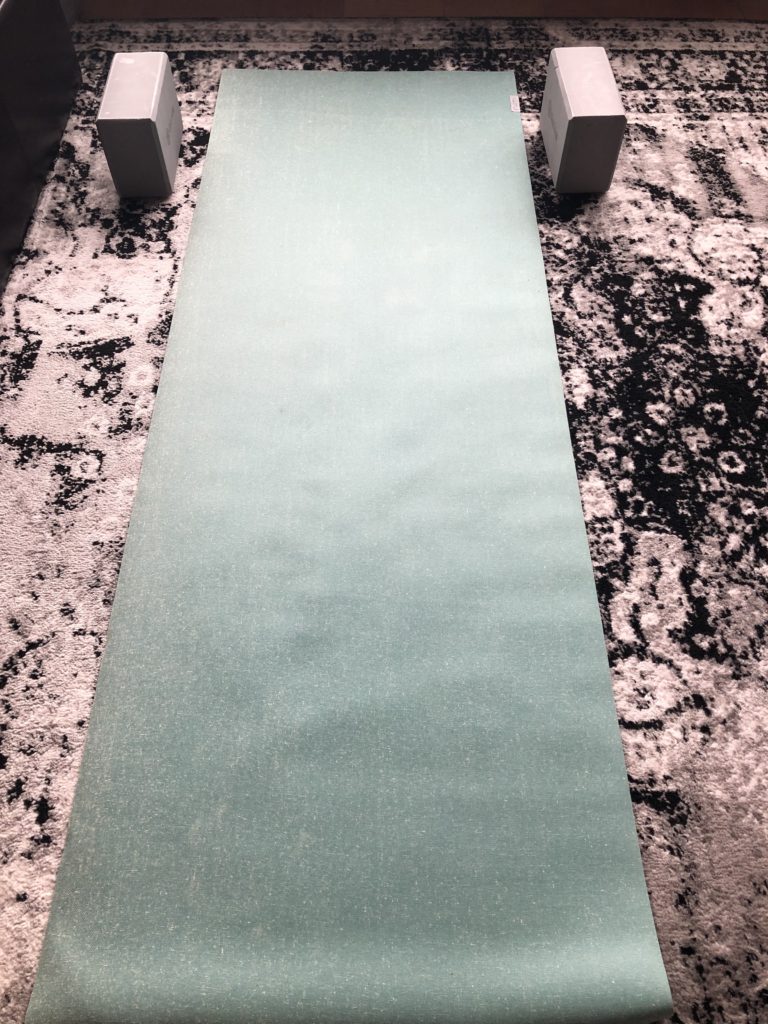One of the daily habits I talk about in my book that’s been a game-changer in my own life is pulling a tarot or oracle card every morning (this is my favorite deck). Earlier this year I kept pulling the 5 of Pentacles, which points to illness, worry, anxiety, sadness, and temporary financial hardship. Whenever I see that card, I make a note to step my self-care a bit to help quiet the anxiety chatter. It got to the point this winter, though, where I was, like, “Seriously, again?” And then when the pandemic hit and drastically changed daily life as we knew it, I couldn’t help feeling a bit of, “Ah, now that makes sense.”
There’s no doubt we’re living in trying times. On a daily basis, we’re faced with uncertainties and stressors surrounding our personal and collective health, finances, and future – it’s all so…heavy. These unknowns also bring with them substantial disruption to our daily rhythm. When our life is altered so much that our normal is no longer possible, it’s not surprising to feel upset or overwhelmed, which is why establishing healthy routines during uncertain times can be vital to our mental and physical well-being.
In recent weeks, I’ve been counseling my clients to come up with a routine which fits their new “normal” lifestyle. Setting this up should not feel complicated; in fact, as I share in a chapter ofThe Little Book of Game Changers embracing a new routine is a great way to help you feel more grounded, setting you up to stay on track towards your goals and helping you feel more stable in your day to day life.
I specifically encourage my clients to develop both morning and evening routines. A morning routine sets you up for a successful day and helps you feel more grounded, while an evening routine signals to your brain and body that you’re winding down for the day and promotes restful sleep.
When setting up a morning routine, tune into what you truly need and think about what you find most helpful for shifting your energy in a positive way. For example:
-If you like to work out in the morning, what types of movement will fit into your regular routine?
-What feels like an optimal time to eat breakfast?
-Are there things you can do to streamline that routine if you feel like you don’t have a lot of time?
-What’s your optimal wake-up time? If you’re a ways off from that time, I suggest gradually waking up 15 or 30 minutes earlier until you get there.
My personal morning routine involves lemon water, a workout, and breakfast while journaling – just because it works for me though doesn’t mean that works for everybody. Pick one or a few things to start with and adjust to fit your needs.
When thinking about an evening routine, think about these things:
-What do you find relaxing at night?
-What hinders your sleep? For example, what noise, light, and anxiety triggers will you need to limit? -Whenever possible, remove distractions. One great way of doing this is by putting down your phone at least 30 minutes before you begin your bedtime routine.
-If you want to incorporate a new habit like meditation, make sure to anchor it to something that’s already part of your routine, like brushing your teeth.
-What feels like an optimal bedtime? If you’re a long way from that goal, gradually go to bed 15 or 30 minutes earlier over the course of a few weeks until you get there. If needed, you can set an alarm to remind yourself to go to bed.
My personal evening routine involves a quick shower to cleanse nervous energy from the day, using lavender oil on my wrists and the bottom of my feet, and jotting down any lingering thoughts or things I want to do the next day so they won’t clatter around in my brain as I try to fall asleep. I also take a few drops of CBD oil if I need additional help quieting my mind before bed, and I like to sleep with a notebook next to my bed in case I wake up in the middle of the night and want to write down what’s bugging me.
Ultimately, know that it’s totally okay for your routine to change as your life changes and remember to be flexible and kind with yourself, and your routine will follow. If you find yourself feeling overwhelmed by your routine, canceling plans you’d normally enjoy because it may interfere with your routine, or having a hard time coping when your routine changes, it might be a good time to take a step back from what you’ve been doing and reassess how your needs have changed and what you need in that moment.
Want more tips for building simple habits that support your goals? My book The Little Book of Game Changers: 50 Healthy Habits For Managing Stress and Anxiety provides actionable tips to help you get navigate stressful times.
Disclaimer: This post may contain a few Amazon affiliate links.

